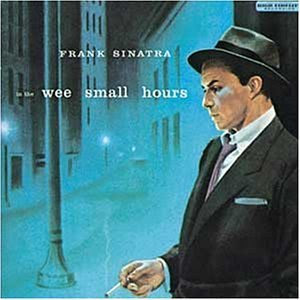Ha ha ha!
I learned why there are so few pictures of Bishop. She disliked the roundness of her face due to the steroids she took for asthma. I'm with you, there, girly-girl! After 15 years on prednisone and with CRPS spread to my face, I'll clock you before you'll get a snap of this visage.
 |
| elizabeth bishop |
But very distressing, as the hours passed, was the lack of photography of Lota de Macedo Soares. In all my searching, and I search well, there seems to be one photograph that has simply been resized, reconfigured, recast, and it's far from revelatory. Forget flattering. More insulting than distressing are the masses of still shots taken from the insipid play and movie of their life together -- was it based on Rare and Commonplace Flowers? I've not read it; Reading about it is irritating enough. Get this: It's recommended for academics in the most fawning blurbs and yet is clearly "novelistic," and somewhat "disappointing" for concentrating more on Lota than Elizabeth. Never mind that there is little in Bishop, beyond her isolated years in Brazil, to endear her to Brazilians. Anyway, despite a dearth of primary sources -- their letters were destroyed -- probably flambéed in tequila -- the book hints at intimate photos of the couple.
Not one goddamned photo of the two together could I find. ("...and I search well...").
And the weirdness. Why must there be weirdness? In lieu of scratching out the clear political liens tugging at Lota, the difficulties of working with and for Rio de Janeiro’s Governor, Carlos Lacerda, mostly over her work on Flamengo Park, she's made out to be an emotional cripple (while Bishop is drunk in some well-designed corner). Lacerda was one of those brief Communists who flipped in the 1940s to become rabidly anti-communist and archly conservative... who opposed almost every Brazilian presidency and then stubbed his toe in the military coup of 1964. Anyway, Lota was a magnificient urban architect but all anyone can agree on is the primacy of her status as autodidact. Not only did I have the sense that everyone is waiting for her buildings to literally fall down, but there's an audible sighing between sentences about her decision to kill herself -- pure irritation that she couldn't stick it out with the great American lesbian writer. Midst the saws of the sighs are the pig grunts of joy with each synonym used for "aristocratic." Or was it "autocratic"?
I love Elizabeth Bishop's poetry. I've been decidedly neutral about her as a person (Why should I care about her as a person?) until today. A kind of tragic childhood, except it does not seem to have bothered her overly much, though it may have influenced her desire for words, if nothing else, to be just so. At some point, she did describe herself as "naturally born guilty," and there's no pickier poet than a guilty poet. A trust fund baby whose friendship with my truly beloved Marianne Moore garnered her awards, laureat-ships, teaching positions, and publication -- Bishop being, apparently, too shy, too busy building a street rep as a "poet's poet," to take care of the business side of poetry.
Randall Jarrell, too, I suppose, was a gate-keeper.
Who does not love Randall Jarrell? (I imagine a sea of nods. Don't cross me today. So: nod.)
Elizabeth Bishop and Robert Lowell were an item. He proposed, even. I remember laughing at a NYTimes reviewer of their correspondance, who chose to sum up the inbred impossibilities of that endeavor this way:
"Bishop was an alcoholic and a lesbian, as well as half a dozen years older."
Journalistic integrity. Gritty digging in the archives. Ha ha ha!
I figure there aren't that many unsnagged aesthetics/poetics to go around. You do the math. So as I sat here vigorously nodding at Slate's Meghan O'Rourke and her summation of Bishop's guiding constellations, it was positively debilitating to read such an excellent description of mine own work, in her brief article, "Casual Perfection," published in June of 2006 (before, it must perforce be noted, that I seriously returned to writing). O'Rourke purportedly was addressing the outrage at the publication of Bishop's drafts, a reaction understandable on behalf of a poet whose drafts might encompass a decade of searching for the flaubertian mot juste. Or perhaps it'd be more correct to speak of an anti-mot juste? I guess what I'm floundering on about is that her drafts did not represent a high kick toward progress but more of a holding pattern while the poet waited for the correct wording to show up. It's not like her empty spaces were spatial abstraction, imbued with whatever -- she was no Mallarmé -- but more like her empty spaces were empty spaces.
So glad I could clear that up.
So here is O'Rourke writing about me before I mattered, thoughtlessly erecting hotels on Boardwalk:
[It has to do with] ...the mystery at the core of Bishop's work: the way her poetry evokes powerful, intimate feelings without devolving into mere self-revelation. Bishop chose a path of aesthetic discretion at a time when many of her peers were pursuing, to great acclaim, confessional self-disclosure. Publishing her fragments seems a betrayal to those who believe that Bishop's genius is largely a product of this reticence—who fear that coming upon Bishop in naked moments of aesthetic undress would destroy the spell cast by her poems.
[...]
A midcentury poet, Bishop wrote at a time when academic studiousness was one vogue (Allen Tate, Randall Jarrell) and self-revelation another (Robert Lowell, Anne Sexton). Following neither, she carved out an original niche, a poetics of subtle observation. Bishop writes about things: filling stations, radio antennae, shampooing another person's hair, a moose in the road. Her work has, as Vendler has put it, a remarkable commitment to exactness, and her primary mode is description. Consider the opening to her poem "Arrival at Santos," the first poem in the prize-winning Questions of Travel:
Here is a coast; here is a harbor;here, after a meager diet of horizon, is some scenery,impractically shaped and—who knows?—self-pitying mountains,sad and harsh beneath their frivolous greenery,with a little church on top of one. And warehouses,some of them painted feeble pink, or blue,and some tall, uncertain palms. Oh, tourist,is this how this country is going to answer youand your immodest demands for a different worldand a better life, and complete comprehensionof both at last, and immediatelyafter eighteen days of suspension?
Characteristically, this poem describes a landscape in the act of being perceived, rather than as the poet has decided (or recalls) it looks. What you first notice is the accumulation of adjectives: meager, self-pitying, sad, harsh, frivolous, little, feeble, tall, uncertain, immodest—precisely the type of pile-on you're taught in introductory writing classes to avoid. But the adjectives are transformative rather than redundant, because they are deployed with such unorthodox precision—as in "tall, uncertain palms," or "feeble pink." Bishop uses adjectives not only to describe, but to anthropomorphize what she's looking at, so that what we see and what is seen are inextricably fused. Her subject, as John Ashbery once memorably put it, is the way we are "part-thing and part-thought." Seeing becomes a form of feeling.
Me, and my art, in a nut shell. Damn this whole business of time as a river, temporal progression.
"Make it new"? Up yours! Damn me to being "in the tradition of..."? Well, I think we know what you can do with that, eh?
A frustrating day.
Oh, you wouldn't understand.
In one of her convivial letters to losing-lover Lowell, Bishop has the gall to write (and he who cites the gall to characterize the sentence as "written more in sorrow than in pride": “I feel profoundly bored with all the contemporary poetry except yours, — and mine that I haven’t written yet.”
See what I mean? Out of some sort of asynchronous allegiance to Starfleet's General Order Number One, the Prime Directive, Bishop simply chose to ruin things for me over potentially causing a minute pinprick to the fatalistic space-time continuum.
So let's just close, shall we? And why not go out with one of Bishop's most famous -- that in the writing hand of another might slip and slide with the pathos of having lost a former lover to an excess of valium, and on the kitchen floor, no less. Oops. More sleuthing -- you know, that academic art -- suggests that the "art of losing" references her broken relationship with Alice Methfessel, Lota's successor, as well as the dead Brazilian.
I chose "One Art" not only because of its fame but also because it's a modified villanelle, a form that I adore and fail at, with regularity.
One Art
BY ELIZABETH BISHOP
The art of losing isn’t hard to master;
so many things seem filled with the intent
to be lost that their loss is no disaster.
Lose something every day. Accept the fluster
of lost door keys, the hour badly spent.
The art of losing isn’t hard to master.
Then practice losing farther, losing faster:
places, and names, and where it was you meant
to travel. None of these will bring disaster.
I lost my mother’s watch. And look! my last, or
next-to-last, of three loved houses went.
The art of losing isn’t hard to master.
I lost two cities, lovely ones. And, vaster,
some realms I owned, two rivers, a continent.
I miss them, but it wasn’t a disaster.
—Even losing you (the joking voice, a gesture
I love) I shan’t have lied. It’s evident
the art of losing’s not too hard to master
though it may look like (Write it!) like disaster.
-- from The Complete Poems 1926-1979








